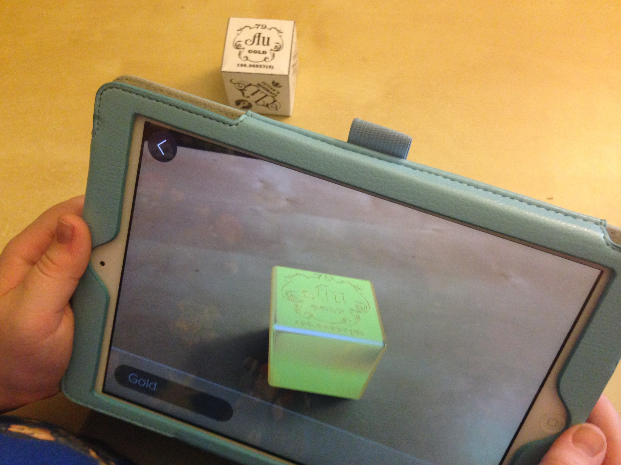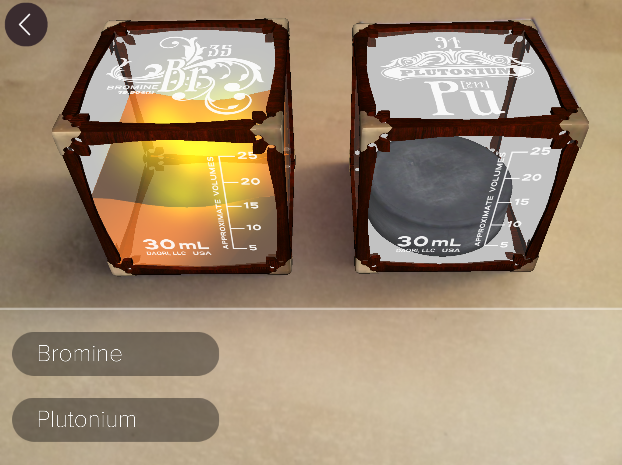
My brain, like all brains, houses an unbelievable quantity of remembered information, and a huge amount of that information is stuff I’ve watched on television. I always hated Star Trek, and frequently said so, but whenever I catch a clip of The Next Generation, somehow I’ve seen that episode before.
I was also never exactly a fan of The Oprah Winfrey Show, but I’ve surely seen several hundred hours of it. For years after it went off the air, I kept remembering a particular insight Oprah shared once. I forget the context, but Oprah was amazed to realize that she didn’t have to answer the phone just because it was ringing.
It was a significant insight to me too, not because answering the phone is a particularly difficult task, but because it meant there was an invisible freedom there, which I somehow didn’t realize I had. Even if I still answered every call, it felt like a choice. Before that, it had been a kind of a master-slave type relationship, in which some remote person could push some buttons and force my body up onto its feet (perhaps tearing me away from a Star Trek rerun).
I am slowly grasping another overlooked freedom, which is the freedom to let people be right (or at least feel right) even though I think they’re wrong. When someone tries to tell the world that Crash is a brilliant film, or that evolution is “just a theory”, I forget that I am free to let them continue to think so.
I gather I have a long history of arguing my views, even when I’m not sure why I’m doing it. One time I was respectfully disagreeing with a coworker about something, and after a particularly good point I made, his tone went from sporting to angry and he said, “Damn, you are one argumentative person!” I told him he was wrong, but later wondered for a few seconds if I was indeed argumentative. No, he was the argumentative one. Otherwise he would have realized I was right.
And this was before the internet was omnipresent in our lives, before it started joining us in the bathroom, back when “going online” was still just an activity you did for part of the day, rather than an additional mode of global perception we can activate at any moment. The typical person experienced far fewer moments in which it felt appropriate to argue a point beyond what politeness allows.
Today, it’s alarmingly easy to find yourself antler-locked with some remote, faceless person who’s trying to tell you that universal healthcare is a communist plot, while you’re waiting for your potato to finish microwaving. This facelessness turns up our impulse to argue even more. You may have noticed it’s a lot less pleasant to argue with someone when you can see their eyes.
I suppose many of you have no idea what I’m talking about. You see a statement you don’t agree with, or you know to be factually wrong, and it creates no urge in you to correct, illuminate or scold, even in your head. You could hear someone praising Nancy Grace as a selfless defender of the vulnerable, or arguing that Godfather III was as good as the others, and yet feel no desire to try to get them to stop thinking that. You are wise enough to know that “fighting the good fight” in internet comment threads is almost always pure indulgence, and just gives ignorance a reason to sink anchors and get louder.

But many of us aren’t so wise. Those argumentative souls among us that do engage, (and there are zillions of us, based on the comment totals on Facebook and YouTube alone) often believe we are somehow actually changing minds, actually eradicating ignorance and thoughtlessness. We aren’t indulging in a destructive or at least useless pastime, we’re saving the world from wrongness, one faceless Reddit user at a time. It’s not just okay to engage in these little conflicts, it’s a moral imperative. We can’t just allow ignorance to go on unopposed. The internet (well the whole world really, but it’s easiest on the internet) must be patrolled for bad beliefs.
And of course, it seldom occurs to us that we’re wrong. Maybe all my sources are incorrect, and we do swallow eight spiders a year in our sleep. But in the heat of enthusiastic wrong-righting, it never occurs to you that you’re the problem, or at least part of it. Being wrong feels exactly like being right, which is the sole feeling experienced by all parties, in any argument, about anything.
For those of us inclined to argue every point, it’s easy to forget that we have the freedom to simply carry on with our lives and let “wrong” viewpoints stand. It’s amazing how often it can seem like an exchange needs your input, the way a screaming kettle needs to be taken off the element.
But it’s not the same. A different viewpoint, no matter how egregious it seems, is no emergency. Civilization survived for over 10,000 years before you and I got here with our snarky corrections and condescending rebuttals, and we didn’t exactly make a huge difference when we did arrive. It turns out we don’t have to try to stop people from thinking what we don’t want them to think, and that our energy is probably better spent elsewhere.
In other words, it is possible, theoretically, to retire from Belief Patrol.
I know beliefs have consequences in the real world. Harmful actions come from bad beliefs. I’m not claiming that we should never oppose anyone, never call anyone out, never engage with people who disagree with us. I just don’t think that casually sparring with blowhards on social media, or even in real life, actually affects anyone’s beliefs in a helpful way.
I think Richard Carlson’s advice is probably an ideal motto for this: Let others be “right” most of the time. Asserting and defending our views takes an enormous amount of mental energy and accomplishes little. Sometimes it’s important (and actually useful) to take a stand in a conversation, but usually it’s just a kind of peace-destroying indulgence.
By “retiring from Belief Patrol”, I’m talking mostly about retiring from having non-face-to-face arguments in which there’s no mutual respect. The moment the motivation slips from goodwill to ill-will or annoyance, I’m done.
I hope. I hope I will notice the impulse before the words come out. It can be so automatic. Once you start to consider retirement, it’s unnerving how attractive it is to say something, to throw in your “Well ACTUALLY…”
It’s like being the hard-boiled TV vice cop whose family convinced him to retire, but then without realizing it, ends up embroiled in some wild crime adventure, following clues and chasing crooks across rooftops. He ends up back in that world, fistfighting a drug dealer on top of a moving train, not because he consciously decided to go back to the grind, but because his detective instincts were sharper than his awareness of what he was doing.
So we’ll see how things go in retirement. Already I’m noticing how often the impulse comes up. I’ve deleted so many half-written Reddit replies that I wonder if I ever contributed anything other than contradiction and snark.
I invite you to join me, if you’re a long-time Belief Patrol veteran. Let’s leave the swashbuckling game for good and go play tennis. We can still express our views in a thousand other ways that aren’t so indulgent and harsh. You have this freedom, and I don’t blame you if you didn’t see it. Already I can tell you it’s way better to be retired. But I won’t argue the point.
***
Have a lot on your mind?
Everyday mindfulness has transformed my life, and the lives of many others. You can use it to reduce stress, deal calmly with trouble, and experience joy and peace throughout everyday life.
Making it a habit is easier than you probably think.
Learn how. 














